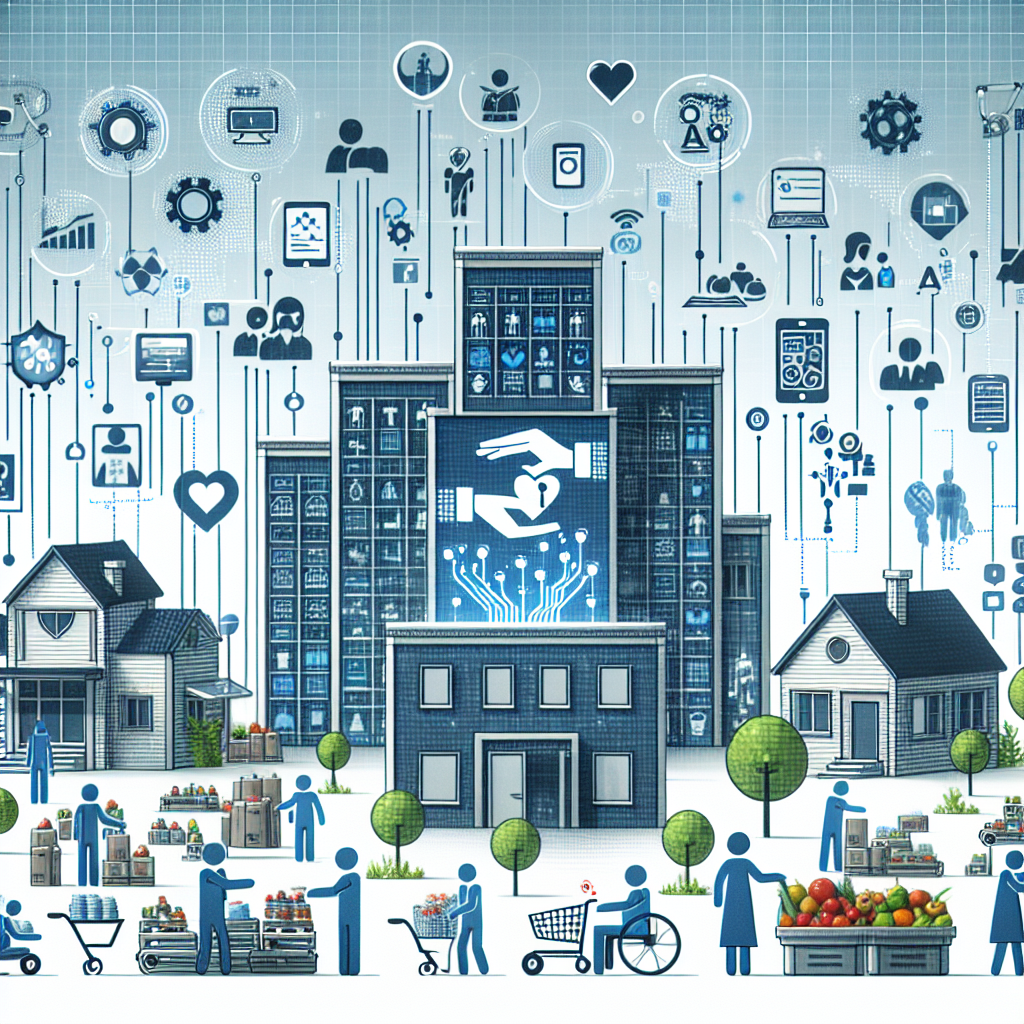AI (Artificial Intelligence) has the potential to revolutionize many aspects of our society, including social services and welfare programs. By harnessing the power of AI, governments and organizations can streamline processes, improve efficiency, and better serve those in need.
One of the key ways in which AI can enhance social services and welfare programs is through data analysis. AI algorithms can analyze vast amounts of data to identify patterns and trends, allowing organizations to better understand the needs of their clients and tailor their services accordingly. For example, AI can be used to predict which individuals are most at risk of homelessness or food insecurity, allowing organizations to intervene before a crisis occurs.
Additionally, AI can help automate many of the administrative tasks that are necessary for social services and welfare programs to function. This can free up human resources to focus on more complex tasks, such as providing direct support to clients. For example, chatbots powered by AI can handle routine inquiries from clients, leaving social workers with more time to provide personalized support.
Furthermore, AI can help improve the delivery of services to clients by providing personalized recommendations and support. For example, AI algorithms can analyze a client’s needs and preferences to recommend appropriate services and resources. This can help clients access the support they need more quickly and efficiently, leading to better outcomes.
Another way in which AI can enhance social services and welfare programs is through fraud detection. By analyzing data and identifying anomalies, AI can help organizations detect and prevent fraud, ensuring that resources are directed to those who truly need them. This can help organizations save money and improve the effectiveness of their programs.
Despite the many benefits of using AI in social services and welfare programs, there are also some challenges and concerns. One of the main concerns is the potential for bias in AI algorithms. If the data used to train an AI system is biased, the system may make unfair or discriminatory decisions. Organizations must take steps to ensure that AI systems are trained on unbiased data and regularly monitored for bias.
Additionally, there are concerns about the impact of AI on jobs in the social services sector. While AI has the potential to automate many tasks, it is unlikely to replace human workers entirely. Instead, AI can complement human workers by freeing them up to focus on more complex and nuanced tasks. Organizations must ensure that workers are trained to work alongside AI systems and that they have the support they need to adapt to changing roles.
Overall, the potential benefits of using AI in social services and welfare programs are significant. By harnessing the power of AI, organizations can improve efficiency, enhance the delivery of services, and better serve those in need. However, it is important to proceed with caution and address any potential concerns or challenges that may arise.
FAQs:
Q: How can AI help improve the delivery of social services and welfare programs?
A: AI can help improve the delivery of services by providing personalized recommendations and support to clients. By analyzing data, AI algorithms can recommend appropriate services and resources based on a client’s needs and preferences.
Q: What are some of the concerns about using AI in social services?
A: One of the main concerns is the potential for bias in AI algorithms. If the data used to train an AI system is biased, the system may make unfair or discriminatory decisions. Organizations must take steps to ensure that AI systems are trained on unbiased data and regularly monitored for bias.
Q: Will AI replace human workers in the social services sector?
A: While AI has the potential to automate many tasks, it is unlikely to replace human workers entirely. Instead, AI can complement human workers by freeing them up to focus on more complex and nuanced tasks. Organizations must ensure that workers are trained to work alongside AI systems and that they have the support they need to adapt to changing roles.

